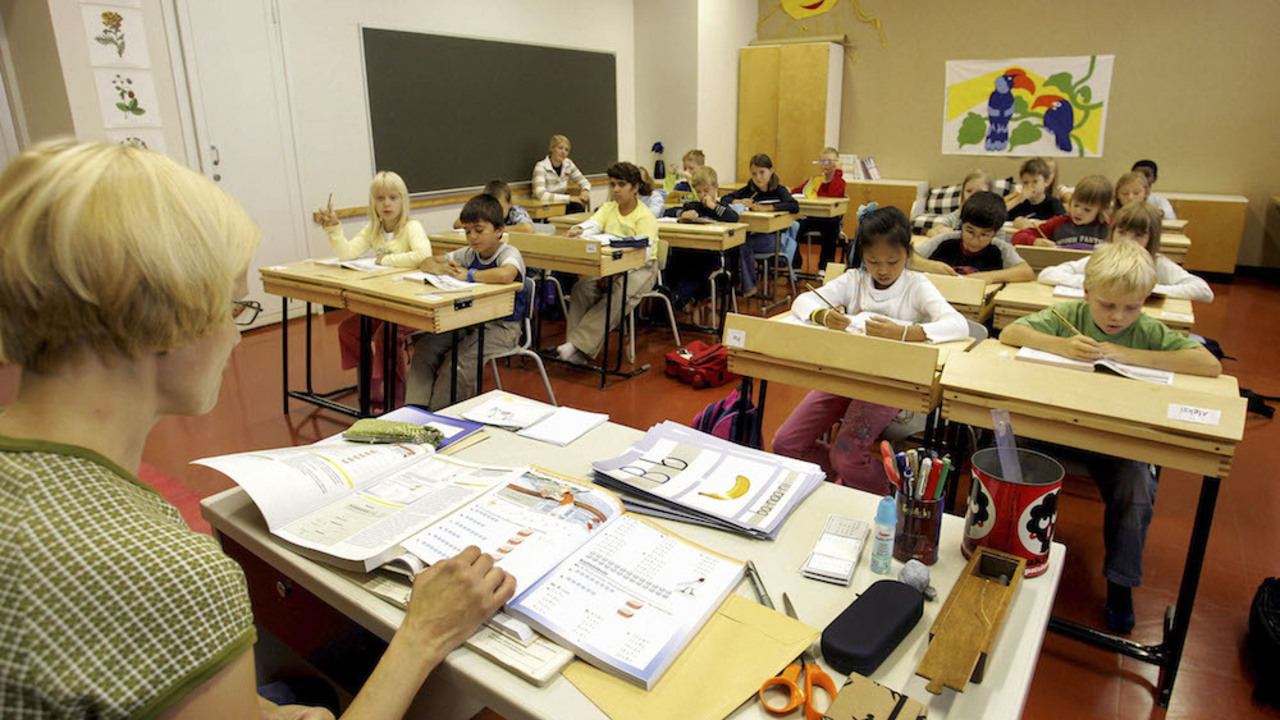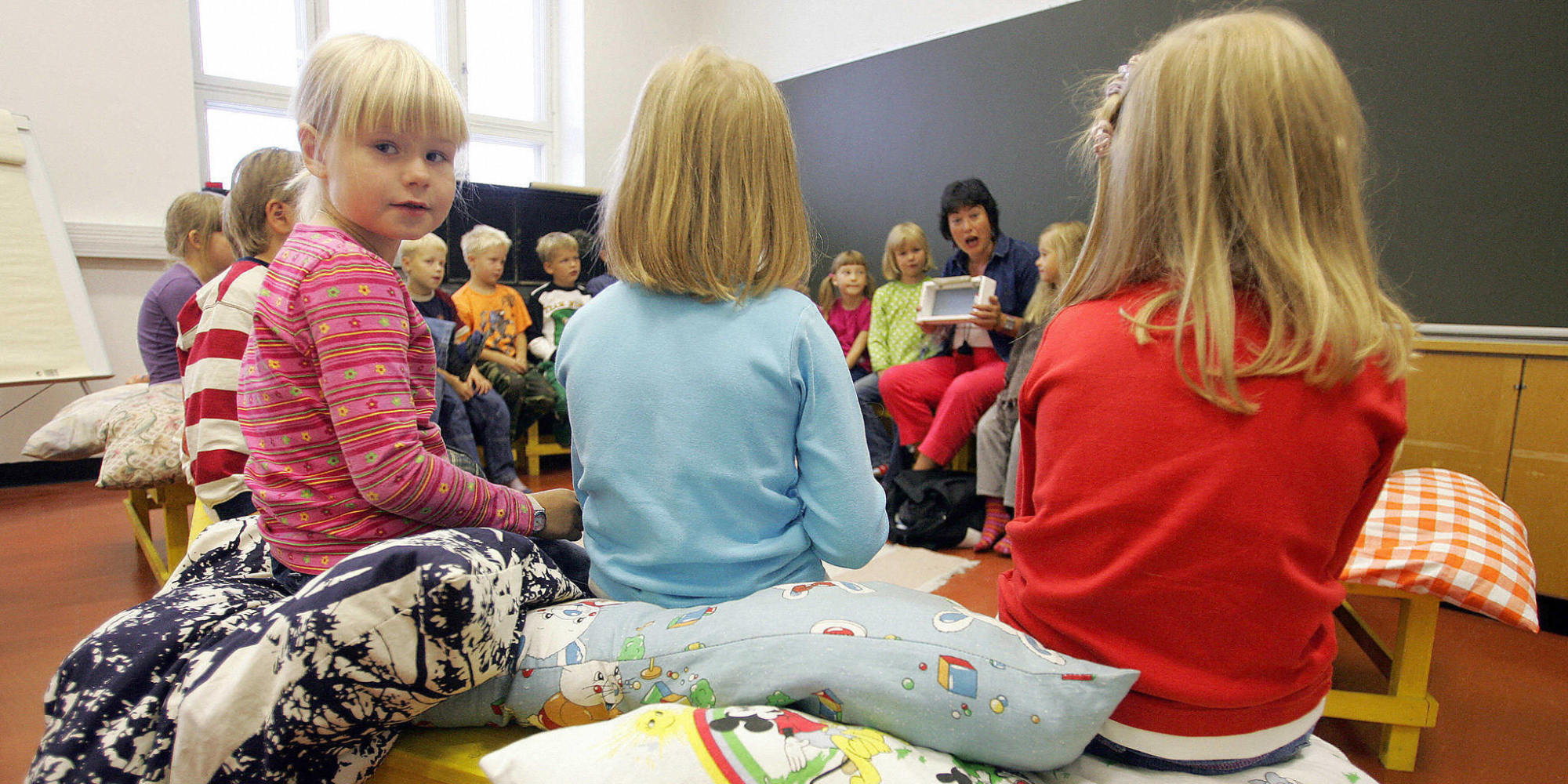7 principles that make a 'desirable' secondary education in Finland
Natalia Kireeva is a woman currently living in Helsinki - the capital of Finland. In an article posted on the Bright Side page, she had an interesting share of the reality of high school education in this country.
According to a 3-year study by the Organization for Economic Cooperation and Development (OECD), Finnish students have the highest knowledge standards in the world, including reading more than students in countries. Other, ranked first in Science and ranked 5th in Math.
Finnish secondary education is divided into 2 phases:
- Low system (alakoulu), from grade 1 to grade 6.
- High system (yläkoulu), from grade 7 to grade 9.
Grade 10 is for students who want to study further.
7 principles of secondary education in Finland
1. Fair
For schools: All schools are funded and equipped with the same facilities. Most are public schools. Only a few are semi-public and often use another education system such as Montessori or Waldorf or teach in foreign languages such as English, German or French. Moreover, the Finns are always looking for ways to preserve all the languages spoken in their territory so studying in Swedish (the second major language) or Sami (one of the languages) The orthodoxy of ethnic minorities is not uncommon.

For subjects: Deviation study (only focusing on one or several subjects) is not recommended.
For parents: They are secured on the workplace, meaning that teachers are not allowed to ask for information about this issue.
For students: Class division based on academic achievement or future career interests is not implemented. In addition, there is no way to distinguish "good" or "poor" students: all students who are gifted or physically or mentally restricted are allowed to study together in an environment. Finnish education strives to help students with special problems be integrated.
Teachers do not impose a positive attitude or show their attitude towards students. All relationships are comfortable and if they do not, they will have to end the teaching contract.
2. Not only are tuition free, students do not have to pay the following costs:
- Lunch.
- Tours, museum visits and all extracurricular activities.
- Buses to school if the house is more than 2km away from the school.
- Textbooks, notebooks, computers and tablets.
- Prohibition of collecting parents' money for all purposes.
3. Personal approach
Each student will be designed a separate educational plan. Books, exercises, homework and classroom activities - everything is selected individually for each student and graded appropriately. Tutoring and tutoring are provided in a timely manner upon request.
4. Methods of practice

The Finns say: "Either prepare them for life or to take exams. We choose the first." That's why Finnish schools don't have any exams at all. The teacher is the one who decides whether to hold midterm exams and exams. There is only one compulsory standard test - a final written test after students complete the high school program. However, the teachers do not conduct the review, but the students must be self-reliant.
School is the place to learn useful skills for real life. Finnish children mostly know how to calculate taxes, create advertising websites, calculate discount percentages or draw "Wind Rose Diagram" to find their way.
5. Trust
All relationships in Finnish schools are based on trust. For example, there are no unexpected teacher tests and no one imposes anything on them. This unified education system only offers general suggestions and allows teachers to choose appropriate teaching methods. Students are allowed to choose a quiet place to sit if they do not keep up with what is happening in the classroom or have not completed the assigned task. The general point is that students are the ones who are choosing the best for them.
6. Voluntary
For students, knowledge is not forced. Teachers do their best to help students actively participate in learning activities. However, if you are not interested or unable to attend, you will be directed to learning a more realistic career. No one scored an F for students who chose that path. Finnish people think that it is necessary to prepare well for life as an adult and that is why studying for a year is not considered shameful.
7. Independence
Finnish teachers help students learn to think, analyze and acquire knowledge independently. It is important to find the necessary information from open sources, while mass memorization of formulas, especially those available on the Internet can be considered a waste of time and energy.

How is the score evaluated?
Finnish education also uses a 10-point scale to score. However, this does not apply to students in grades 1 through 3. All schools have an electronic whiteboard system called "Wilma", which allows teachers and staff to work in The school, doctors and psychologists give feedback to students and keep in touch with parents. Students are not afraid of getting bad grades. Because, scores are used to motivate students, not to intimidate them. In addition, the reputation or salary of teachers is not assessed based on whether students get a high or low score.
Some other interesting information:
- The campus has no barriers or protection.
- In class, children can sit on the floor or carpet.
- There are no school uniforms or any suggestions on how to dress. However, students will have to bring two pairs of shoes, especially in the winter.
- When the weather gets warmer, the class will be held outdoors. Younger students will be allowed out at recess.
- Almost no homework. Children enjoy their free time. Parents are not encouraged to help their children with their homework: teachers think that families should organize a visit to the museum, walk or swim.
The Finns do not claim their education system is perfect. Therefore, they have never stopped adjusting and improving this system. They are also constantly researching so that it fits with the latest changes of society and the development of science.
Natalia Kireeva thinks that Finns are doing the best things for children in their country. Children do not dream of growing up faster, do not hate school and do not stress themselves and their families in the face of the final exam. They always have time to study and enjoy life.